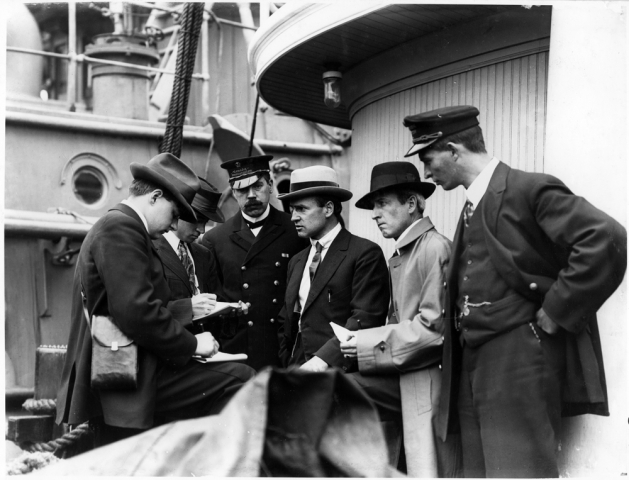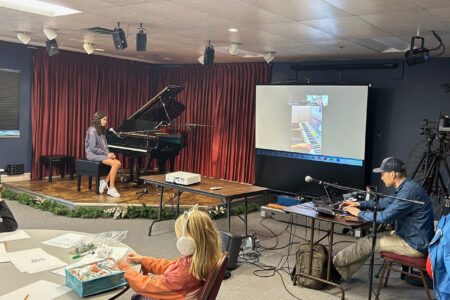TALES AND LEGENDS OF THE MOUNTAIN KINGDOM: James Alexander MacDonald
First of all, before we get into this week’s topic, I want to take a moment to thank Ron Shearer, native Rosslander and historian extraordinaire, for taking the time to meet me at a busy White Spot in Surrey to discuss (over burgers) the history of Rossland, his research, and potential future articles I might write about Rossland’s history.
Because I have to admit, it’s becoming tough lately to get ideas. I’ve been writing “Tales & Legends of the Mountain Kingdom” for over two years now, and before my lunch with Ron I thought this project was starting to tailspin into a whirling vortex of nothingness–and I was feeling tapped out and uninspired. But now I have more fuel to keep this thing going for another little while, and I am very grateful for Ron’s help.
So, James Alexander MacDonald…not to be confused with James Alexander McDonald, who was a Halifax lawyer and politician who was involved in Sir. John A. Macdonald’s government. If you think that’s a lot of MacDonalds, you are right, and it can be confusing. Let’s sort it out.
The MacDonald of Rossland fame–for he does go on to do something significant in the history of BC–was born in Huron County, Ontario, and was well-educated at Stratford, Ontario (incidentally where the Canadian part of my heritage also hails from). He then went on to attend the University of Toronto and Osgoode Hall law school. Following his law studies, he set up a practice in Toronto in 1890, but eventually the lure of a small mining camp in the backwater of British Columbia lured him to Canada’s west. Bringing a bride with him, he set up shop in Rossland in 1896. He went on to practice law in Rossland for 13 years.
During this time, MacDonald had a few significant side projects. For one thing, in 1903, he ran as the provincial Liberal candidate for Rossland’s riding and won. He eventually became the caucus leader and was, as such, the leader of the opposition. He also did a stint as the first president of the Provincial Mining Association. In 1905, he was appointed to the King’s Council, and in 1907 he was voted by his colleagues as a bencher for the Law Society of British Columbia.
In 1909, things changed drastically. The Law Society had long been agitating the provincial government for an official court of appeal, and in 1909, the British Columbia Court of Appeal was created by an act of the legislature. And guess who was appointed as the very first Chief Justice? James Alexander MacDonald. At this point, he had to give up his law practice in Rossland and move to the coast.
Early in the new year of 1910, the BC Court of Appeal had its first sitting, in what is currently the Maritime Museum in Victoria’s Bastion Square. Within a month of that, it had its second sitting, in Vancouver, in the current Vancouver Art Gallery, which was back then a brand new courthouse. There were a few bugs to work out. For instance, at the beginning, the BC Court of Appeal had only four judges on it, making tied decisions of 2 – 2, which isn’t a positive decision, but rather a denial. It took a few years to work this bug out, as a fifth judge was not added until 1913. Over the years the number increased, until we now have 15 judges in the appeal court.
As an appeal court judge, James MacDonald there are few anecdotes about his tenure there, but I did find one. According to the source, fellow judge A. Bruce Robinson said that MacDonald “had practically no knowledge of the outside world.” He went on to say, “MacDonald never drove a motor car, but decided every case involving motor cars on whether the driver of the car had applied the emergency brake, because he had the idea that the emergency brake was a device which brought any car in any situation to an immediate stop.” But Mr. Robinson’s statement isn’t backed up by proof (shocking!), for the source goes on to say that MacDonald did not see many motor vehicle cases during his tenure in appeal court.
But James was on the court of appeal for a very important incident in the history of British Columbia and in Canada: the Komagata Maru incident. While the ship full of mainly Punjabi would-be immigrants (376 in all) sat in Vancouver’s harbour while all on board were processed and questioned by Canadian immigration officials, and while governments and citizens squabbled over what to do with the boatload of people, a plucky lawyer named J. Edward Bird randomly selected a couple of the would-be immigrants to try a test case before the appeal court. One of the men he chose was 26 year old Munshi Singh. He spoke no English, and the lawyer didn’t trust the translator, who was a member of the team of immigration officials questioning the people on the boat. I can imagine that Munshi would have been confused about why he was chosen out of 376 people, but as no one was able to leave the boat, for weeks, I can imagine that he was also stoked to get off the ship and get some fresh air and shore time – even if it was as a witness in a trial before the appeal court.
But Munshi would be on the wrong side of the eventual decision. On July 6, 1914, the BC Court of Appeal unanimously denied Bird’s appeal on behalf of Munshi, judging that they as a court of appeal had no right to interfere with the Department of Immigration and Colonization. The ship, minus 20 people who did meet the criteria to stay, was ordered back to India. Munshi ended up back where he came from, in a small village in the Punjab, though 19 of his boatmates were not that lucky; they were killed in a riot when the ship arrived in a port called Budge Budge.
In 1937, James MacDonald’s health began to fail, and he retired from law. He died two years later, December 20, 1939, in Victoria, at the age of 81.
So there you have it. Another Rosslander who came to find fame and fortune in the Mountain Kingdom, and went on to do big things in the history of the province, and the country.
Souces:
1. Interview with Ronald A. Shearer, Nov. 27, 2012
2. Lords of the North, by James K. McDonell, Robert Bennett Campbell, as it appears in Google Books
3. http://en.wikipedia.org/wiki/James_Alexander_MacDonald
4. komagatamarujourney.ca
5. The British Columbia Court of Appeal: The First Hundred Years, 1910-2010, by Christopher Moore
6.http://www.lawsociety.bc.ca/page.cfm?cid=239&t=The-BC-Court-of-Appeal-marks-its-100th-anniversary
7. http://www.vancouverhistory.ca/archives_komagatamaru.htm

























